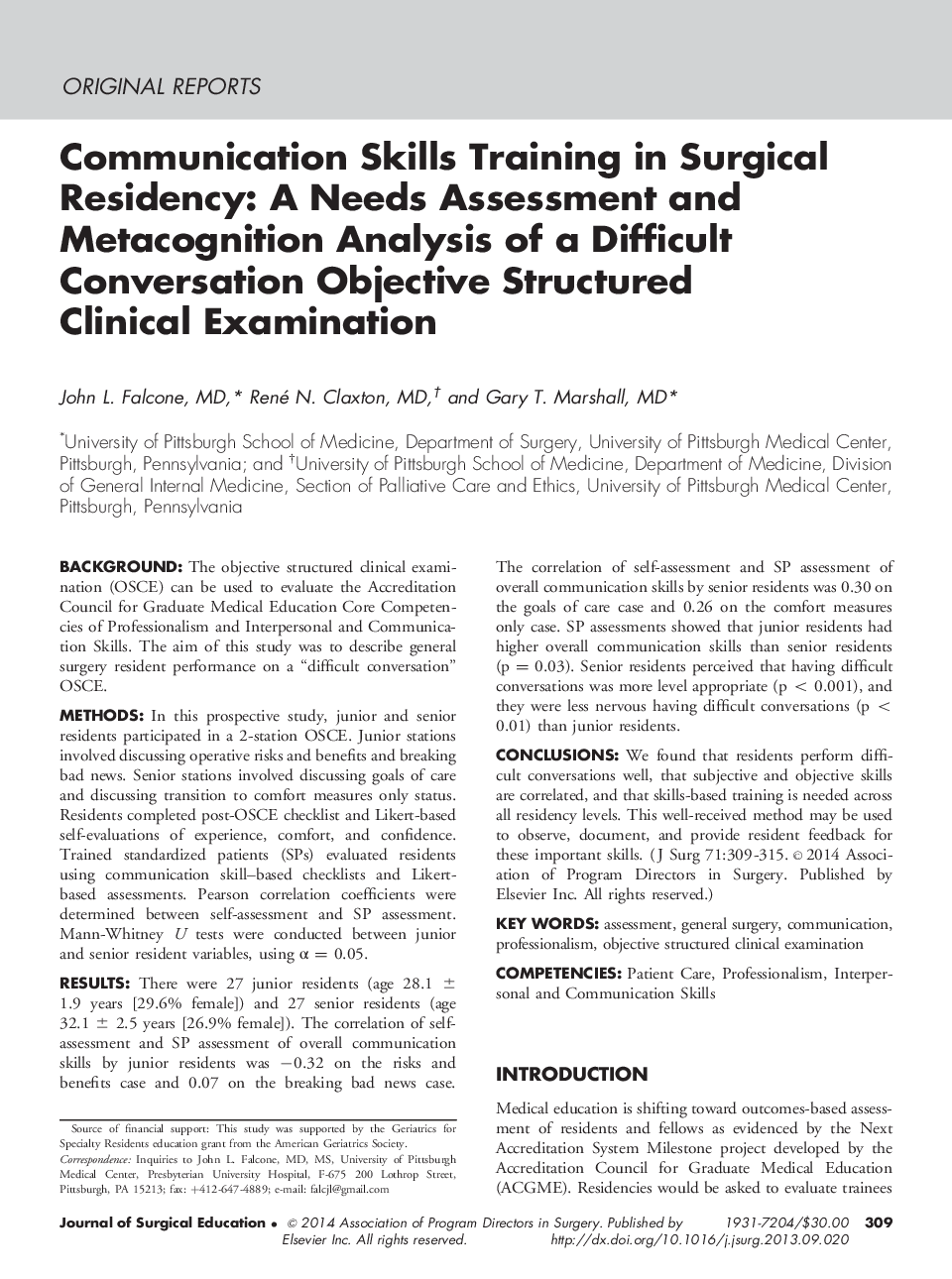| Article ID | Journal | Published Year | Pages | File Type |
|---|---|---|---|---|
| 4297864 | Journal of Surgical Education | 2014 | 7 Pages |
BackgroundThe objective structured clinical examination (OSCE) can be used to evaluate the Accreditation Council for Graduate Medical Education Core Competencies of Professionalism and Interpersonal and Communication Skills. The aim of this study was to describe general surgery resident performance on a “difficult conversation” OSCE.MethodsIn this prospective study, junior and senior residents participated in a 2-station OSCE. Junior stations involved discussing operative risks and benefits and breaking bad news. Senior stations involved discussing goals of care and discussing transition to comfort measures only status. Residents completed post-OSCE checklist and Likert-based self-evaluations of experience, comfort, and confidence. Trained standardized patients (SPs) evaluated residents using communication skill–based checklists and Likert-based assessments. Pearson correlation coefficients were determined between self-assessment and SP assessment. Mann-Whitney U tests were conducted between junior and senior resident variables, using α = 0.05.ResultsThere were 27 junior residents (age 28.1 ± 1.9 years [29.6% female]) and 27 senior residents (age 32.1 ± 2.5 years [26.9% female]). The correlation of self-assessment and SP assessment of overall communication skills by junior residents was −0.32 on the risks and benefits case and 0.07 on the breaking bad news case. The correlation of self-assessment and SP assessment of overall communication skills by senior residents was 0.30 on the goals of care case and 0.26 on the comfort measures only case. SP assessments showed that junior residents had higher overall communication skills than senior residents (p = 0.03). Senior residents perceived that having difficult conversations was more level appropriate (p < 0.001), and they were less nervous having difficult conversations (p < 0.01) than junior residents.ConclusionsWe found that residents perform difficult conversations well, that subjective and objective skills are correlated, and that skills-based training is needed across all residency levels. This well-received method may be used to observe, document, and provide resident feedback for these important skills.
